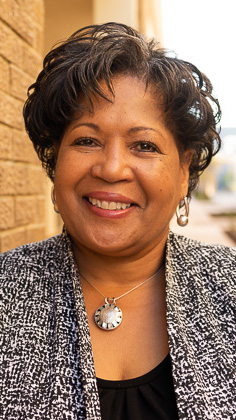'Only a Pawn in Their Game' Panel to Discuss Legacy of Medgar Evers
Panel to examine Dylan's Greenwood performance and Evers' enduring impact

OXFORD, Miss. – Three threads of Mississippi and civil rights history – Medgar Evers, Bob Dylan and Jerry Mitchell – will be woven together in a public conversation Oct. 8 at the University of Mississippi.
The free, public event is set for 5:30 p.m. in the Overby Center for Southern Journalism and Politics auditorium. It will feature a panel discussion about Dylan's "Only a Pawn in Their Game," performed at the 1963 Delta Folk Jubilee in Greenwood, and the assassination of Evers just weeks earlier.

The event also marks the 100th anniversary of Evers' birth.
"The more I researched Dylan's 1963 trip to Greenwood, the more I realized this was a significant event in the trajectories of both Dylan's career and in the Mississippi civil rights movement," said R.J. Morgan, associate professor of journalism and resident Dylan scholar whose research into the Greenwood event has evolved into a book project.
"This was Dylan's first trip to the segregated South, and it took a lot of courage to come perform in Mississippi at that time. This was the Student Nonviolent Coordinating Committee's first attempt at bringing in white outsiders to open the state's 'closed society,' a strategy that would ultimately grow into Freedom Summer the following year."
Besides Morgan, panelists include Reena Evers-Everette, Medgar Evers' daughter and executive director of the Medgar and Myrlie Evers Institute; and Jerry Mitchell, Mississippi Today investigative reporter whose cold case reporting helped bring Evers' killer to justice in the 1990s.
The panel will also share the life and legacy of Evers, who fought injustice his entire life as a World War II veteran and NAACP field secretary.

Evers is a patriot, Mitchell said.
During World War II, Evers fought on the beaches of Normandy and was later part of the group of soldiers called the Red Ball Express who provided fuel and food to troops routing German forces.
"After defeating the Nazis, Evers returned home to fight racism all over again in the form of Jim Crow, which barred Black Mississippians from restaurants, from restrooms and from voting booths," Mitchell said.
Evers applied to the Ole Miss School of Law in 1954 but was rejected because of his race.
"NAACP officials considered appealing his case, but they were so impressed with him, they offered him a job instead," Mitchell said. "Evers became the first field secretary for the Mississippi NAACP, and for the next decade, he continued to fight until an assassin gunned him down in the driveway of his home in Jackson."
And because of this, according to Dylan, Evers was only a pawn in their game.

A new generation has an awareness about Dylan and how he became a spokesperson for a generation, and for a generation of change, said Tony Pederson, Overby Center managing fellow.
"One of the main ideas at the Overby Center is to emphasize free speech and freedom of expression and the positive impact that it has on a society," he said. "Music that was written in the '60s that was a call for change and for activism; that resonates today just as well as it did 60 years ago."
Pederson and Morgan hope audience members realize the significance of Evers, Dylan and Mississippi in the past and present.
"Freedom songs were a powerful cultural movement in the 1960s," Morgan said. "This program is an opportunity to learn some Mississippi history and to reflect on the power of song."
Top: A panel discussion Oct. 8 at the Overby Center for Southern Journalism and Politics will examine Bob Dylan's performance at the 1963 Delta Folk Jubilee in Greenwood and how that intersected with the assassination of civil rights leader Medgar Evers just weeks earlier in Jackson. The 'Only a Pawn in Their Game' event is free and open to the public. Adobe Stock photo
By
Marisa C. Atkinson
Campus
Office, Department or Center
Published
October 01, 2025
